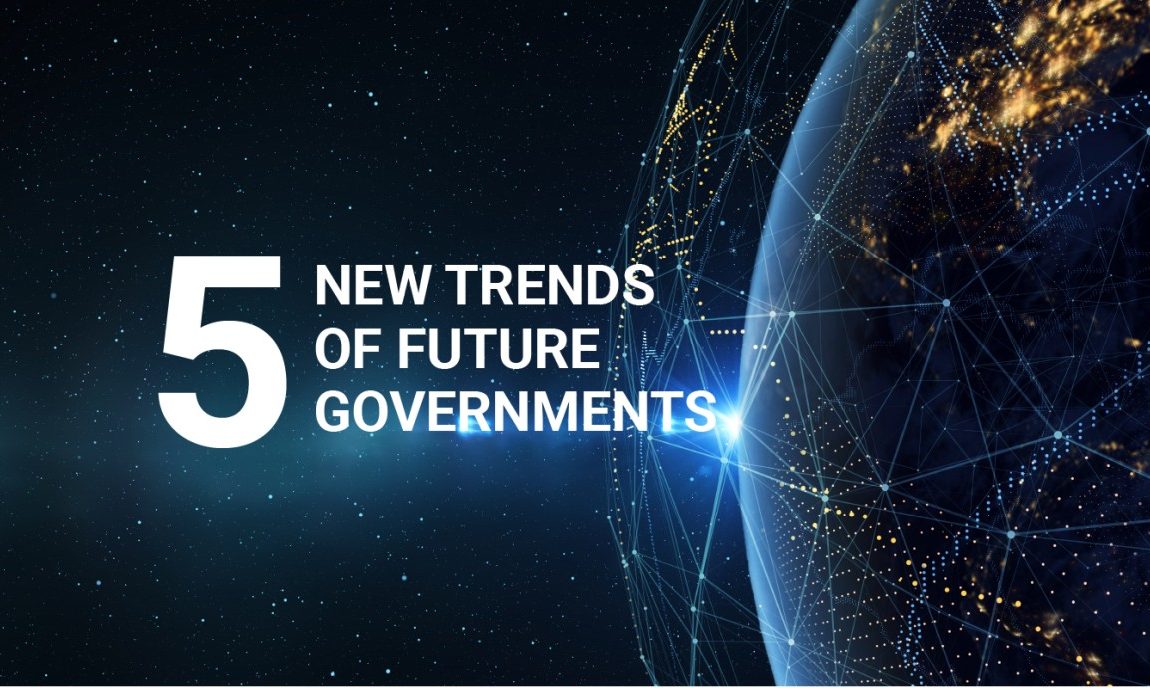Five New Trends of Future Governments

After enduring six years of devastating conflict involving 30 nations – with the world’s major powers aligned against each other – the Second World War (1939-1945) concluded, leaving behind a grim legacy: over 50 million fatalities, 80 million casualties, and staggering economic losses totaling $40 trillion. This unparalleled man-made catastrophe of the 20th century inflicted unprecedented humanitarian, economic, and political havoc.
Yet, as history illustrates, crises present opportunities for metamorphosis. The aftermath of the war spurred the establishment of the United Nations and galvanized global support for the Universal Declaration of Human Rights. Key institutions such as the International Monetary Fund and the World Bank emerged, alongside initiatives like the Marshall Plan, which not only facilitated Europe’s reconstruction but also propelled industrial revitalization and innovation. Groundbreaking advancements like computers, the jet engine, nuclear power, and antibiotics reshaped national prosperity and societal dynamics. From the war’s ruins emerged the European Union.
Today, humanity grapples with an unprecedented battle against a shared, invisible adversary that transcends borders, economies, and geopolitics. This conflict, which bookended the year 2020, rattled even the most advanced nations and their healthcare systems to their core. The novel coronavirus pandemic has claimed over 2 million lives and wrought global economic losses exceeding $11 trillion, sparing no corner of the globe from its impact. Consequently, one must ponder: What transformative shifts will characterize the world once this new conflict subsides?
From a third-person perspective, a new era appears imminent, challenging entrenched beliefs and norms while ushering in fresh economic and social paradigms. Governments must decipher the evolving global landscape and discern impending trends to navigate the post-COVID-19 world effectively. Here are five emerging trends poised to shape the trajectory and efficacy of future governance:
Firstly, the reversal of globalization: The global health crisis compelled nations to fortify their borders and curtail mobility. Governments redirected their focus inward, reconfiguring supply chains. The crisis laid bare nations’ tendencies toward self-interest, intensifying geopolitical competition and eroding faith in globalization. Governments prioritized national interests, particularly in critical sectors like food and pharmaceuticals, fostering bilateral agreements over global initiatives. The retreat from globalization demands a recalibration of government strategies, emphasizing the significance of strategic partnerships in a less interconnected world.
Secondly, bolstered trust in governments: The pandemic prompted a surge in public reliance on governments to manage various sectors, bolstering trust levels to unprecedented heights. The Edelman Trust Barometer recorded an 11-point spike in government trust, reaching a historic high of 65%. Nationalism surged in many countries, presenting governments with a unique opportunity to solidify trust through effective crisis management. Conversely, inadequate responses eroded public confidence, leading to governmental collapses and paralysis.
Thirdly, data sovereignty as a cornerstone of national identity: The crisis propelled a digital revolution, with millions transitioning to remote work and education. This shift underscored the importance of data protection, equating it with safeguarding national sovereignty. Robust data security measures and policies are poised to wield significant influence in the post-pandemic era, necessitating governmental frameworks to uphold digital privacy and sovereignty.
Fourthly, a paradigm shift in governance models: Governments, long hindered by bureaucratic inertia, now face unprecedented pressure to adapt to digital imperatives. The pandemic necessitates the establishment of agile governance models capable of accommodating remote work and e-commerce, supported by legislation fostering digital innovation and productivity. Embracing new service delivery models is imperative to address evolving challenges and meet public expectations.
Lastly, imperative collaboration with the private sector: Recognizing the indispensable role of the private sector in crises, governments must forge robust partnerships to ensure domestic resilience and manage emerging challenges. Establishing legislative frameworks and technical systems to integrate public-private efforts is essential in fostering sustainable solutions.
In the words of Winston Churchill, “Never let a good crisis go to waste.” The ongoing crisis, spanning borders and cultures, has brought the world to a standstill, underscoring the imperative of transformative action. While the toll of the pandemic is profound, our greatest loss would be failing to create a more adaptable world for future generations.
World governments must confront fundamental questions transparently: What is the future role of governments? How will governance evolve? What international relations framework will safeguard all parties’ interests during crises? How will science shape our future? To what extent should governments invest in research to address emerging challenges?
Crucially, governments must reflect: Has the global health crisis fostered compassion and unity? Will it catalyze a departure from outdated practices, paving the way for a smarter, cleaner, and kinder world?